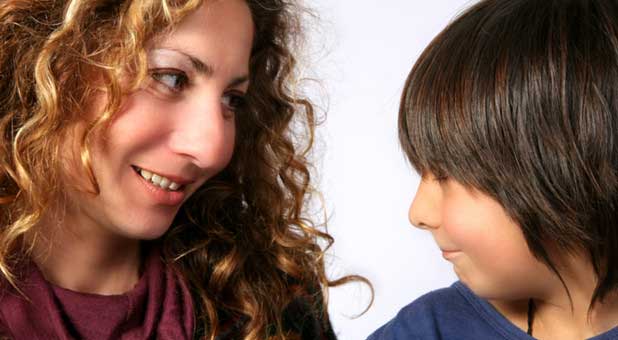“Why are you sad, Mom?”
Cheryl was trying to recover from the upsetting news she received at work. She didn’t get the promotion she had hoped for. But that wasn’t her daughter’s problem. Should she put on a happy face or share the situation with her 9-year-old?
In this case, Cheryl’s daughter often moped around when she was disappointed so Cheryl decided this might be a helpful time to be transparent.
“I didn’t get the promotion I wanted. I’m disappointed.”
Those words led Cheryl into an interesting dialogue with her daughter about disappointments in life and how best to handle them. Not only was it helpful for Cheryl, but her daughter also seemed to gain new ideas for her own disappointments.
Communicating about your emotions can be an encouragement to your kids, because, after all, most kids deal with similar emotions. Hearing parents talk about their feelings and then demonstrating appropriate responses is one way to train kids to deal with their own emotions. Even when parents struggle with responding well, kids can learn from the process.
Take anger for example. Some parents have their anger meters set too tight. They react with intensity for even the smallest infraction of the rules. James 1:19-20 is helpful for us all to memorize. “Therefore, my beloved brothers, let every man be swift to hear, slow to speak, and slow to anger, for the anger of man does not work the righteousness of God.” Character qualities like patience, persistence, and self-control help both children and parents to increase the tolerance level on their anger meter.
One single dad told us, “One morning, I got up, looked in the mirror and didn’t recognize the person I had become. I realized that I needed to make some changes in myself. Anger and bitterness were making me a hurtful person. As I began working on my own thoughts, feelings, and reactions, I was able to respond differently to life’s struggles. I was then surprised to see my kids change in response to what they saw in me. Things started moving in a positive direction for my family.”
One of the signs of a healthy family is the ability to share about emotions. Set the example in family life. Talk openly with your kids about the emotions you experience and how you’re working through them. You may be surprised to find your children learning to express emotions more appropriately as well.
This article is taken from the book Good and Angry: Exchanging Frustration for Character in You and Your Kids by Dr. Scott Turansky and Joanne Miller, RN, BSN.











































